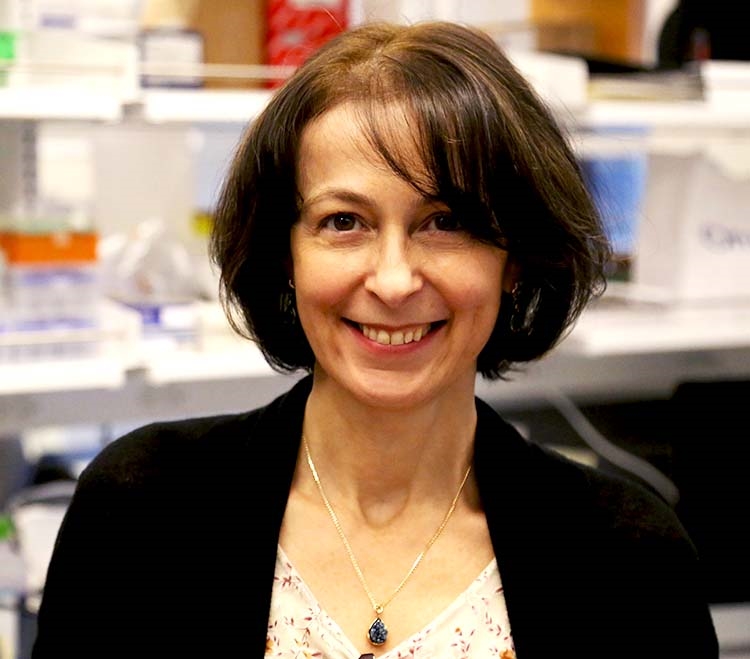AIMRC Seminar on Stimulation of Anti-Tumor Immunity by Radiation Therapy

Dr. Sandra Demaria, professor of radiation oncology and pathology and laboratory medicine, Weill Cornell Medical College.
The Arkansas Integrative Metabolic Research Center will host a Zoom seminar at 1 p.m. on Tuesday, March 15, featuring Dr. Sandra Demaria of Weill Cornell Medical College, who will discuss how most cancer cells exposed to ionizing radiation do not undergo immediate death even when the damage is lethal, but remain within the tumor mass for some time, during which they generate molecular signals that modify the cross-talk of the tumor with the host immune system.
Central to this process is the activation of the DNA damage repair (DDR) response, which is often dysregulated in neoplastic cells, and associated with DNA displacement to the cytosol where it activates innate immune signaling via the cGAS/STING pathway, leading to the production of type I interferon (IFN-I), a critical effector of cell-mediated anti-viral and anti-tumor immunity. Radiation also enhances the release of immune-stimulating ATP, NAD+ and cGAMP, but ectonucleotidases that are expressed in the tumor and further induced by radiation convert these nucleotides into immunosuppressive adenosine. Thus, the balance of immune-activating and suppressive signals determines the ability of radiation to promote anti-tumor immunity.
Demaria, who holds a Doctor of Medicine, is a professor of radiation oncology and pathology and laboratory medicine at Weill Cornell Medicine. She obtained her M.D. from the University of Turin, and then moved to New York City for her post-doctoral training in immunology, followed by a residency in anatomic pathology at NYU School of Medicine.
Demaria is internationally known for her pioneering studies demonstrating the synergy of radiation with immunotherapy. Her lab has a central interest in addressing the molecular mechanisms that regulate ionizing radiation's ability to generate an in situ tumor vaccine in both preclinical models as well as cancer patients. Seminal findings from her lab include the demonstration that radiation upregulates the expression of chemokines that attract effector T cells to the tumor, activates canonical pathways of viral defense that elicit the production of interferons and enhances the production and presentation by cancer cells of mutational neoantigens recognized by T cells.
If you have any questions about this event, please contact Kimberley Fuller.
Topics
Contacts
Sarah Grace Brown, communications coordinator
Division of Research and Innovation
479-575-6874,
sarahb@uark.edu
Headlines
PetSmart CEO J.K. Symancyk to Speak at Walton College Commencement
J.K. Symancyk is an alumnus of the Sam M. Walton College of Business and serves on the Dean’s Executive Advisory Board.
Faulkner Center, Arkansas PBS Partner to Screen Documentary 'Gospel'
The Faulkner Performing Arts Center will host a screening of Gospel, a documentary exploring the origin of Black spirituality through sermon and song, in partnership with Arkansas PBS at 7:30 p.m. Thursday, May 2.
UAPD Officers Mills and Edwards Honored With New Roles
Veterans of the U of A Police Department, Matt Mills has been promoted to assistant chief, and Crandall Edwards has been promoted to administrative captain.
Community Design Center's Greenway Urbanism Project Wins LIV Hospitality Design Award
"Greenway Urbanism" is one of six urban strategies proposed under the Framework Plan for Cherokee Village, a project that received funding through an Our Town grant from the National Endowment for the Arts.
Spring Bike Drive Refurbishes Old Bikes for New Students
All donated bikes will be given to Pedal It Forward, a local nonprofit that will refurbish your bike and return it to the U of A campus to be gifted to a student in need. Hundreds of students have already benefited.




